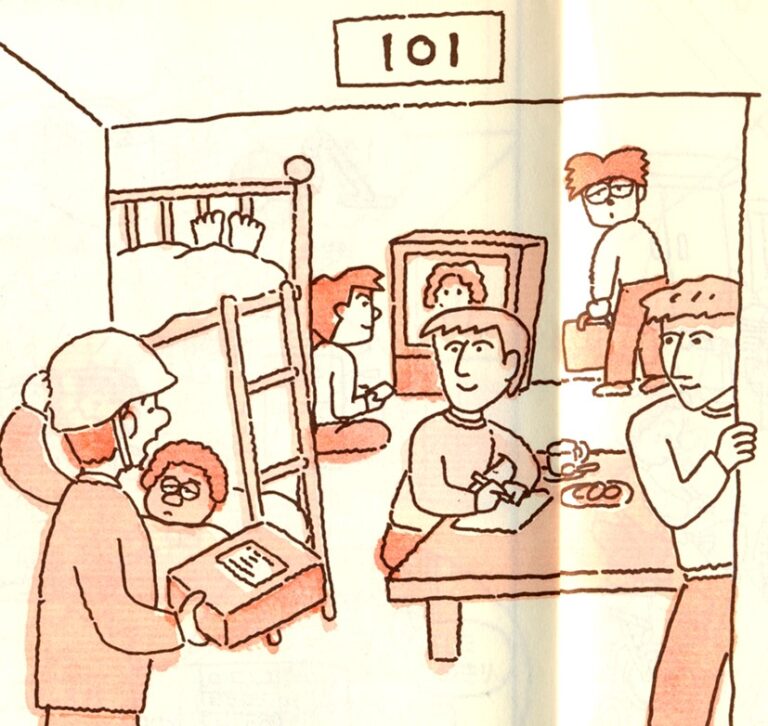若き学生時代に急遽海外放浪の旅に踏み出し、その経験から外国人賃貸業界に深い興味を抱くようになったのが、イチイ社長・荻野氏です。このコラムでは、そんな荻野の体験をコラム形式でお届けします。
※本コラムは『異文化共生住宅』をテーマにイチイ社長 荻野が2005年1月から2006年3月まで週刊住宅に寄稿したものです。
文化の違いに対応するには「無断転貸、無断同居」 自己負担ゼロのアパート?
いま、200万人を超える外国人が日本で生活をしており、その数は毎年過去最高記録を更新している。その外国人にとって、生活の拠点である住居の確保がスムーズに行われているかと言えば、残念ながら「NO!」である。まだまだ家主側に外国人入居に対して不安があるからだ。
その不安の一つは、外国人入居の例で「いつのまにか知らない人に転貸された」とか、「勝手に同居人を増やされた」などの話を耳にすることが多いからだ。
実際のところ、外国人入居ではこうした「無断転貸、無断同居」が、日本人入居に比べてどのくらい多いのだろうか。出身国にもよるが、外国人が無断転貸をする理由には、「外国人は部屋が借りにくい」という事情がある。そのため自力で部屋を借りられない者が、帰国で部屋が不必要になった者から転貸を受ける。
次に「無断同居」であるが、まず考えられるのが数人で住むことで部屋代を安く上げたいとする経済的理由がある。また、国によっては賃借人に人数制限を設けず、借り受けたものが自己責任で部屋を管理する賃貸借のところもあるため、これが日本では重大な契約違反だと気づかずに、母国と同じように行なう者もいる。実際、上海などでは最初から一部転貸を目的に広い部屋を借り、そこからの収入で部屋代をまかなう者もいる。さすが商売上手な上海人だ。
「無断同居」する最も多い理由は、母国から来る友人、知人を一時的に泊まらせるためだ。日本の賃貸借の厳格さから、外国人が来日前に部屋を確保することはかなり難しい。そのため、一旦、友人・知人宅にお世話になり、その後ゆっくり部屋探しをするのが一般的のようだ。つまり友人のアパートは日本における短期宿泊所なのだ。やはり、そこには外国人ならではの必然性や理由があり、「転貸、同居」をするケースは日本人より多そうだ。

そういえば、20~30年前までは日本人でも地方から上京する際は、親戚や友達宅を短期宿泊所にし、馴れたら独立というパターンがあった。
Addressing Cultural Differences”Unauthorized Subleasing and Cohabitation”An apartment without any personal expenses?
Currently, over 2 million foreigners live in Japan, and their numbers are reaching new records every year. However, when it comes to securing housing, which is essential for their lives here, the answer is unfortunately a “NO!” The reason is that landlords still feel uneasy about renting to foreigners. One common concern is hearing stories about foreigners who have sublet their apartments to strangers without notice or who have increased the number of occupants without permission.
In reality, it’s worth wondering how common “unauthorized subleasing and cohabitation” is among foreign tenants compared to Japanese tenants. Depending on their country of origin, foreigners may sublease without permission because “it’s hard for foreigners to rent a room” on their own. Thus, those who cannot secure a room by themselves might sublet from someone who is returning to their home country and no longer needs the apartment.
As for “unauthorized cohabitation,” one reason is the economic benefit of sharing the rent among several people. In some countries, there are no restrictions on the number of occupants, and tenants are responsible for managing the property themselves, so they may unknowingly commit a serious breach of contract in Japan by behaving as they would in their home country. Indeed, in places like Shanghai, some rent large apartments with the intention of subleasing them to cover their rent, showcasing the Shanghainese knack for business.
The most common reason for “unauthorized cohabitation” is to temporarily host friends or acquaintances from their home country. Due to the strict nature of rental agreements in Japan, it is quite difficult for foreigners to secure an apartment before arriving in the country. Therefore, it is common to initially stay with friends or acquaintances and then search for their own place at leisure. In effect, a friend’s apartment becomes a short-term lodging in Japan. There is an inherent necessity and reason unique to foreigners, making “subleasing and cohabitation” more common among them than among Japanese.
Indeed, 20 to 30 years ago, it was common for Japanese people moving to Tokyo from other regions to use the homes of relatives or friends as temporary lodging until they were settled enough to live independently.
应对文化差异“未经许可的转租与同居”不用自己负担的公寓?
目前,超过200万的外国人在日本生活,他们的数量每年都在刷新历史记录。然而,谈到为他们的生活提供稳定住所,不幸的是答案是“不!”之所以这样是因为房东对于租给外国人还存有不安。其中一个常见的担忧是听说外国人租客“不知何时就把房子转租给了不认识的人”,或者“擅自增加同住人数”。
实际上,比起日本人租客,“未经许可的转租和同居”在外国人租客中有多常见值得探讨。根据他们的出生国家的不同,外国人未经许可转租的原因可能是“外国人很难租到房间”。因此,那些自己无法租到房间的人可能会从不再需要房间的归国者那里接手转租。
至于“未经许可的同居”,一个原因是多人共住以减少房租的经济考虑。在一些国家,租赁合同不对居住人数设限,租户需自行管理房屋,因此他们可能在不知情的情况下在日本犯了严重的合同违规。实际上,在上海等地,有人初衷就是租大房子转租,用转租的收入支付房租,显示出上海人的商业头脑。
“未经许可同居”的最常见原因是为了临时接待来自祖国的朋友、熟人。由于日本租赁合同的严格性,外国人在来日前确保住房相当困难。因此,一般先暂住在朋友或熟人家中,然后慢慢寻找自己的住处。实际上,朋友的公寓在日本成了短期住所。这里确实存在着外国人独有的必要性和理由,使得“转租和同居”的情况比在日本人中更为常见。
事实上,20到30年前,从地方上京的日本人也常常将亲戚或朋友家作为临时住所,直到他们适应并能独立生活。
荻野社長ブログはコチラ▶ https://co-lifestyle.net

